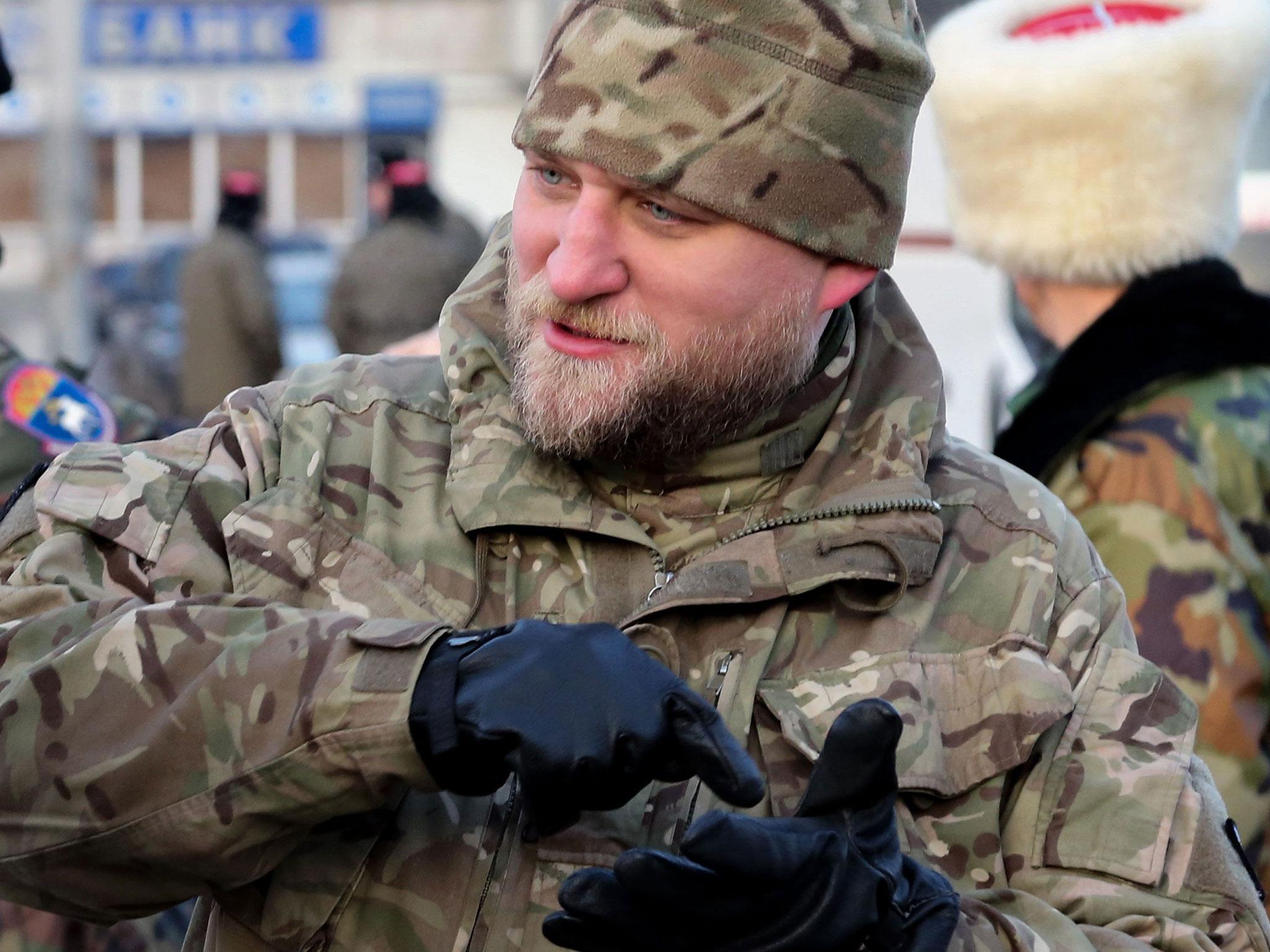Kremlin distances itself from captured ‘Russian soldiers’ shown in Isis propaganda video
Dmitry Peskov says Russia would be ‘concerned’ if the men ‘turn out to be Russian citizens’

Russia is still “working to confirm” the nationalities of two prisoners purported to be Russian soldiers being held hostage by the Islamic State, a spokeswoman for the Russian Foreign Ministry told The Independent on Wednesday.
“All agencies are working to confirm identities, whereabouts and the circumstances of their kidnapping,” Maria Zakharova said. The spokeswoman added that Russia has not yet received any demands for the release of the prisoners.
The Kremlin has so far has maintained a nuanced position in denying that the men were outright Russian soldiers. In a statement put out last night, the Ministry of Defence said that the men, who present themselves as Roman Zabolotny and Grigory Tsurkanu in the hostage video, “were not part of the Russian armed forces.”
On Wednesday, however, presidential spokesman Dmitry Peskov said that Russia would be “concerned” were the men “to turn out to be Russian citizens.”
Independent researchers claim to have confirmed the men’s identities – and their indirect links to the Russian armed forces. Using the data the men provide in the video, researchers at Conflict Intelligence Team (CIT) were able to identify social media accounts of two men with the same names. The resemblance of photos to the men in the video is persuasive.
From this, the researchers contend that Mr Zabolotny spent several years in the Russian army as a contract soldier, before joining a private military group called Wagner.
This pseudo-mercenary group is believed to be aligned with Russian security and military forces and has been active in conflicts in both eastern Ukraine and the Middle East. According to some reports, the groups have been trained by Russia’s Main Intelligence Directorate, GRU.
Journalists from Radio Free Europe later spoke to Roman Tsurkanu, the brother of the second man. In the interview, Mr Tsurkanu confirms the identity of his brother and his role fighting for the Wagner unit: “Yes, they were hired soldiers,” Mr Tsurkanu is reported to have said. “The [Russian] state is supporting a private army – Wagner, that’s them.”
The Wagner unit has been operating in Syria since as early as 2015, says Ruslan Leviev, a researcher at CIT. Initially, the group was manned by professional mercenaries, “veterans of Chechen and Afghan conflicts.” But after 2016, membership was expanded, and the skillset reduced: “This was when all kinds of people joined, often without direct military experience got involved – Cossacks, separatists from Donbass and so on.”
Some have questioned the value of having a semi-professional pseudo-mercenary unit like Wagner on the battlefield. But that would be to miss the point, says Mark Galeotti, Senior Researcher at the Institute of International Affairs Prague. Its real purpose may be to “conceal the real number of casualties” in a war few Russians want to hear about.
“Even though it is clearly an instrument of the state, Wagner’s losses don’t need to be declared, allowing the Kremlin to maintain the fiction that this is a clean war,” says Galeotti.
“There is certainly no appetite for seeing boys come home in body bags from a war to protect [Syrian leader Bashar al-] Assad.”
Join our commenting forum
Join thought-provoking conversations, follow other Independent readers and see their replies
Comments
Bookmark popover
Removed from bookmarks